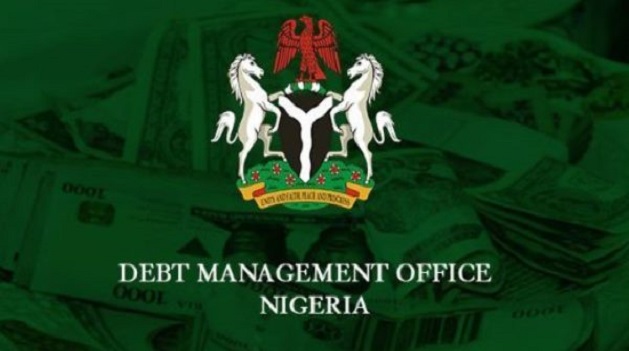E-Financial
DMO Opens N350bn Bond Auction: Get Your Slice of the Pie

Debt Management Office (DMO) has announced the reopening of two Federal Government of Nigeria (FGN) bonds for public auction, with a total value of N350 billion, offering units at a subscription price of N1,000 each.

The savings bonds are designed for retail investors and come with guaranteed quarterly interest payments and full repayment of the principal at maturity.
According to a statement released on Wednesday, April 23, the auction is scheduled for April 28, with settlement on April 30. The bond offers will be issued in two tranches. The first tranche comprises a N200 billion five-year bond due to mature in April 2029 with an annual interest rate of 19.3 percent. The second tranche is a N150 billion nine-year bond set to mature in May 2033, carrying an annual interest rate of 19.89 percent.
Each bond unit is priced at N1,000, with a minimum subscription of N50,001,000 and subsequent subscriptions in multiples of N1,000. For these reopened issues, where the coupon rates are already fixed, successful bidders will pay an amount corresponding to the yield-to-maturity that clears the auction volume, in addition to any accrued interest on the bond.
Interest payments will be made semi-annually, with the full principal repaid in a single bullet payment at maturity. The DMO emphasized that these savings bonds qualify as government securities under the Trustee Investment Act and are recognized for tax exemptions under both the Company Income Tax Act (CITA) and the Personal Income Tax Act (PIA), making them attractive for pension funds and other institutional investors.
The bonds are also listed on the Nigerian Exchange Limited and the FMDQ OTC Securities Exchange and qualify as liquid assets for liquidity ratio calculations for banks. Backed by the full faith and credit of the Federal Government of Nigeria, the bonds are secured against the nation’s general assets.
The DMO encouraged interested investors to contact any of the designated Primary Dealer Market Makers (PDMMs) to participate in the auction. This initiative follows a similar reopening of FGN bonds worth N300 billion in March.
E-Financial
Keystone Bank, Enterprise Devt Centre Sign MoU To Empower SMEs ln Nigeria

Keystone Bank Limited and the Enterprise Development Centre (EDC) of Pan-Atlantic University have signed a landmark Memorandum of Understanding (MoU) to promote Small and Medium Enterprises (SMEs), youth entrepreneurship, and financial inclusion across Nigeria.

The MoU signing ceremony took place at the bank’s head office in Lagos on Tuesday, June 24, 2025.
Speaking at the event, Mrs Nnenna Anyim Okoro, the Executive Director, Corporate and South, Keystone Bank, described the partnership as a bold and strategic step toward accelerating national economic transformation.
According to her, the collaboration underscores Keystone Bank’s unwavering commitment to empowering the next generation of business leaders and fostering an inclusive financial ecosystem.
“At Keystone Bank, we believe that entrepreneurship is the heartbeat of sustainable economic development.
Across Nigeria, MSMEs are not just businesses; they are the dreams and daily struggles of men and women determined to create value, provide jobs, and build a better future. They are, quite literally, the engine room of our national economy.
“Our sponsorship of the Annual EDC SME Conference 2025 and support for the Global Entrepreneurship Week (GEW) Walk reflect our deep belief in the transformative power of small businesses.
“This partnership is also about financial inclusion, youth engagement, capacity building, job creation, and collaboration,” she stated.
Olayemi Sule, Group Head, Retail & Digital Banking, Keystone Bank, emphasized the innovative offerings customers can expect as a result of the partnership.
“Our customers should look forward to a suite of innovative financial products and digital solutions specifically designed to support business growth, enhance financial literacy, and improve market access.
Also speaking, Dr. Nnenna Ugo, EDC board member and Head, Alumni Relations and Support Services at Pan-Atlantic University, expressed optimism about the partnership’s long-term impact.
“We are super excited about this partnership and confident that it will drive transformation for both institutions.
“The EDC was established to build capacity and provide support services for SMEs. In the past 21 years, we have trained over 350,000 entrepreneurs across Nigeria.
“Keystone Bank’s support comes at a critical moment as we scale our programs and expand our reach ahead of the 2025 SME Conference and GEW Nigeria.
“The SME Conference is a powerful platform that brings together key players in the ecosystem each year to address pressing issues affecting small businesses.
“This collaboration strengthens our capacity to engage more entrepreneurs, provide deeper insights, and drive conversations that inspire growth, resilience, and innovation.
“We commend Keystone Bank’s leadership for its vision and dedication to inclusive economic growth. The bank has truly distinguished itself as a champion of enterprise, and we are proud to have them as a strategic partner,” she concluded.
As part of the agreement, Keystone Bank becomes the major sponsor of the 2025 EDC SME Conference and a key supporter of the GEW Walk, a flagship event during Global Entrepreneurship Week Nigeria 2025.
Both events are expected to attract thousands of entrepreneurs, investors, thought leaders, and policymakers, offering a vibrant platform for knowledge-sharing, networking, and business empowerment.
E-Financial
Fidelity Bank Boosts Staff Morale with Mass Promotions and 20% Pay Raise

Fidelity Bank Plc, one of Nigeria’s top-tier financial institutions, has promoted 376 employees following its recently concluded annual performance review exercise.

This represents approximately 12% of the bank’s workforce, underscoring its management’s deep appreciation for the pivotal role played by staff in recoding the highest growth by percentage volumes in the banking industry with 210% increase in its Profit Before Tax (PBT) which grew from N124.3 billion in 2023 to N385.2 billion in 2024.
The announcement, which was recently communicated internally, comes on the heels of a 20% across-the-board salary increase implemented in June 2025—a gesture that reflects the bank’s commitment to staff welfare. It is worth noting that this follows a similar salary adjustment carried out in November 2024.
Under the leadership of Dr. Nneka Onyeali-Ikpe, Fidelity Bank has consistently outperformed market expectations. In 2024, the bank recorded the highest share price growth of 116% in the industry following the completion of its Public Offer which was over subscribed by 238% .
In recognition of the banks stellar performance, global rating agency, Fitch Ratings recently upgraded Fidelity Bank’s National Long-Term Rating from ‘A(nga)’ to ‘A+(nga)’ in a further endorsement of the bank’s financial strength and prudent management. The upgraded ratings reflects improved profitability metrics and robust capital buffers, reinforcing the bank’s sustained upward trajectory.
E-Financial
Fidelity Bank Clears the Air: MD Not Linked to Woobs Case

Fidelity Bank Plc on Wednesday refuted claims that its Managing Director, Dr. Nneka Onyeali-Ikpe, is involved in an ongoing fraud case concerning the account of Woobs Resources.

The Bank’s position follows reports published by Sahara Reporters alleging that Dr. Onyeali-Ikpe was listed as a defendant in the case.
However, documents sighted by Nigeria CommunicationsWeek revealed that the charge sheet dated May 12, 2025, named the defendants as Victor Ukutt, Fidelity Bank Plc, Whoba Ugwunna Ogo, and Safiya Whoba.
A statement by the Office of the Attorney General of the Federation and Minister of Justice dated June 9, 2025, confirmed that Onyeali-Ikpe’s name was struck off the charge list.
The Ministry noted that she was neither the Managing Director nor the account officer at the time the account in question was opened.
The clarification aims to dispel misinformation and uphold the integrity of the institution and its leadership.

 Telecom3 days ago
Telecom3 days agoLebara, New Operator Enters Nigerian Telecom Arena, Sells Minutes, Not Airtime

 General News2 days ago
General News2 days agoOpenAI Unveils New AI Agent for Software Developers

 E-Business3 days ago
E-Business3 days agoOver 7m Streaming Accounts’ Credentials were Leaked in 2024 – Report

 E-Financial3 days ago
E-Financial3 days agoFidelity Bank Uplifts Old People’s Home with Essential Items Donation

 E-Financial3 days ago
E-Financial3 days agoS&P Global Ratings Downgrades Ecobank Nigeria’s Credit Rating to CCC-, Outlook Negative

 Telecom3 days ago
Telecom3 days agoPIN Pushes for Equitable Digital Governance at World Internet Forum

 Telecom2 days ago
Telecom2 days ago15 African Startups Using AI Selected for Google Accelerator Cohort 9

 E-Financial3 days ago
E-Financial3 days agoEFCC Drags Cititrust to Court over Unreported ₦200mTransfers



























